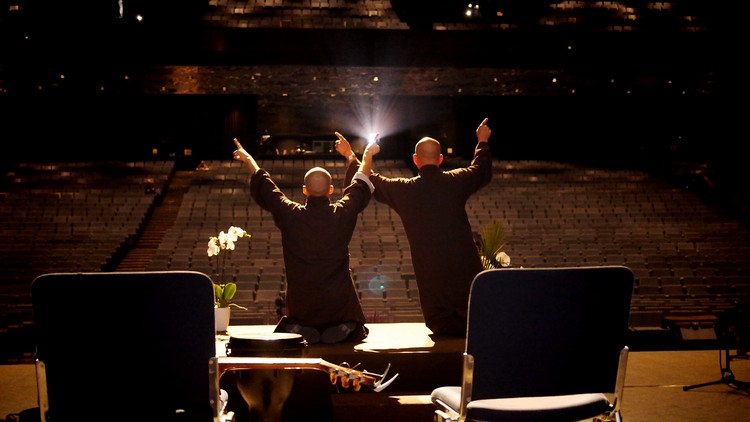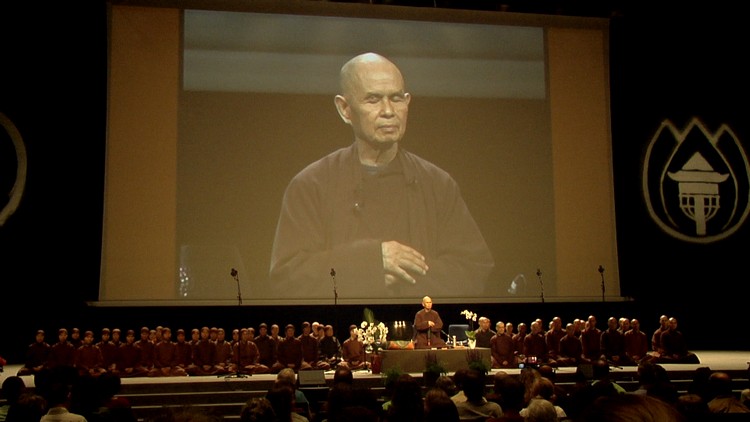blog
To love is to be there

The Forum in Barcelona is a very big and modern theatre. It can hold more than 3000 people. That evening it was packed. On the poster an image of Thich Nhat Hanh and the title of his talk: The Art of Living Awake. The theatre was buzzing with excitement. What would the famous zen master share with the audience that evening?
The zen master had not come alone. About fifty monastics had travelled with him to Spain. They were already on stage, sitting at two sides next to a small elevated platform, where their teacher was going to sit. They all sat in lotus position, in rows, solid and in silence, with eyes closed. Just that image alone made the 3000 people in the audience be dead silent.
A bell sounded, their master came on stage, the monastics stood up, and together they bowed to the audience. Body and mind together, acknowledging the presence of everyone in the theatre.
‘Good evening dear friends. Breathing in can be very pleasant.’
Thich Nhat Hanh, or Thay, as his followers call him, sat down next to the big bell, and gave an introduction to the classical song of Avalokiteshvara, a moving song of compassion, often sung by the community at the beginning of a talk or a retreat. It prepares the audience for what is going to come. And what did come?
In a space with 3000 people waiting for his first words to come out, Thay opened in a very simple way: ‘Good evening dear friends. Breathing in can be very pleasant.’ I was stunned. I had never heard somebody opening a talk for such a big audience in this way. But that is zen, to keep things simple and to bring it down to the essence. No complexity at all.
Twenty minutes later in his talk he arrived at the topic of love. ‘The most simple definition of love is to be there.’ If you ask a thousand people to give a definition of love, I guess nobody would give this answer: To love is to be there. And he added the rhetorical question: ‘How can you love if you are not there?’

How can you love if you are not there!? The logic is this: only when you are there, truly present, ‘at home’ in yourself, you can take good care, first of all of yourself: of your thoughts, your emotions, your words and your bodily actions. And then, when you know how to take good care of yourself, you will know how take care of others too.
Come home
So, the first and most important condition of love is to be present. And Thay continued: ‘When we practice mindful walking and mindful breathing we come home in every breath and every step. That is the practice of cultivating our presence. That is the practice so that we can truly love. With each breath, with each step you can come home.’
Now, years later, I wonder, if the lives of those 3000 people in the Forum in Barcelona have changed after that evening. Were those simple words strong enough for a change to happen? Or did the people in the audience go back to their normal lives again, to the habit of not being present?
The evening breeze was fresh that night. It resembled Thay’s words in a perfect way: ‘You don’t have to make any effort to breathe in.’ The art of living awake is simple and effortless: you just have to breathe and be present.
Only then you can touch life deeply, only then love is possible.

Wouter Verhoeven